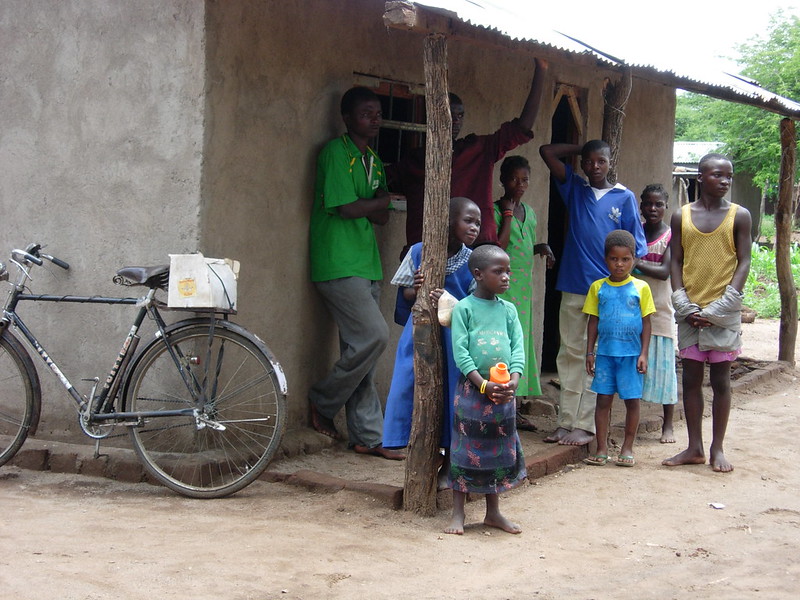Combating Poverty in Mozambique Through Nutrition
 Mozambique is home to 33 million people, two-thirds working in rural areas. While the country has abundant land for crops, many citizens still suffer from poverty in Mozambique due to lack of job creation, low levels of human capital accumulation and extreme climate changes. About 46.7% of children suffer from malnutrition in Nampula, a major city in Mozambique, with the child poverty level at 58.9%. Here is information about efforts to combat poverty in Mozambique through nutrition.
Mozambique is home to 33 million people, two-thirds working in rural areas. While the country has abundant land for crops, many citizens still suffer from poverty in Mozambique due to lack of job creation, low levels of human capital accumulation and extreme climate changes. About 46.7% of children suffer from malnutrition in Nampula, a major city in Mozambique, with the child poverty level at 58.9%. Here is information about efforts to combat poverty in Mozambique through nutrition.
The Situation in Mozambique
A lack of information about proper nutrition is a major cause of poverty in Mozambique in addition to unequal access to nutritional foods for women and girls. They also suffer from high rates of teenage pregnancy, improper sanitation and poor hygiene which directly impacts the levels of nutrition for teenage girls.
Access to education is also unevenly distributed among citizens of Mozambique with limited resources to provide its people with information about how to incorporate accurate nutrition into their diets. This lack of training impacts the supply and demand and leads to low productivity, especially among women with less access to skill training.
Due to its long Indian Ocean coastline, Mozambique is extremely vulnerable to natural disasters. According to the 2021 Global Climate Risk Index, Mozambique is the fifth country most impacted by extreme weather. In 2019, Cyclone Idai barreled through the country leaving a path of poverty and destruction in its wake. Two years later, Cyclone Eloise hit the country due to changing weather patterns that triggered floods and cyclones in the area.
Disaster Response in Mozambique
The Mozambique government has taken steps to form a natural disaster response creating an early warning system and improvements in flood drainage that the World Bank funded and Mozambique’s Water and Sanitation Infrastructure (AIAS) implemented. The United Nations Development Program (UNDP) has also stepped in to create temporary income-generating activities including setting up fish farming collectives and promoting resilient construction to rebuild communities that natural disasters have affected.
Mozambique’s Partnership with IFAD
Mozambique’s government has also teamed up with the International Fund for Agriculture Development (IFAD) to provide $4.2 million USD for two grants that will assist rural citizens in better fortification against malnutrition and food insecurity and provide more income. Crops, livestock and fisheries provide 27.5% of Mozambique’s GDP and agriculture makes up 70% of employment so it is important to increase productivity in this sector.
Since 1983, IFAD has invested in 15 rural programs which have benefited more than 2 million households. It has also partnered with the Norwegian Agency for Development Cooperation (NORAD) to fund the aquaculture sector, which has provided training about producing freshwater fish and feed producers technical assistance. By growing this food market, this inclusion of fish provides more nutritional value to children’s diets, further battling malnutrition in Mozambique.
Citizens’ Efforts to Generate Income
Citizens of Mozambique have also started recycling aluminum to generate income. The metal can help make utensils, cups, plates and even pots and pans, which individuals can then sell to others in the community. They are in high demand as opposed to traditional clay pots and utensils because of their durability, longevity and affordability. These can last five to 10 years longer than traditional clay pots.
Members of those in the rural community that do not have access to many resources including electricity, are tasked with recycling beer and soft drink cans and scrap metal from the garbage dumps to create domestic materials to keep the environment cleaner but also provide enough income for food and education purposes. It is also an opportunity for children to earn money by selling cans and scrap metal to cooperatives who repurpose them. They have created charcoal irons out of recycled aluminum as opposed to expensive electric ones to keep clothes clean for those living without electricity and to save energy.
Education About Nutrition
Women and girls are taking the initiative to break out of this cycle of poverty in Mozambique by educating themselves about proper nutrition. Half of the girls from ages 12–17 suffer from anemia in Mozambique due to poor nutrition and it is one of the leading causes of mortality among girls. Jogo das Heroínas (The Heroine Games) is a program created by NGOs in Mozambique and aided by USAID’s Transform Nutrition program to create social and behavioral change. During a 16-week period, women and girls set challenges and activities each day that promote healthy nutrition choices. Challenges might include eating fruit or green vegetables instead of a less nutritious option. They are try to choose iron-rich foods to combat anemia and provide a wider range of edible food options.
The Heroine Games are not only providing life-saving education to women suffering from unequal access to resources, but it is uniting them through their shared experiences and inspiring them to pass on their knowledge so that younger generations do not have to suffer the way they have. Education about what sorts of food to put into their bodies is the key step to longevity and breaking out of the cycle of poverty that has claimed their lives.
– Jennifer Arias
Photo: Flickr
